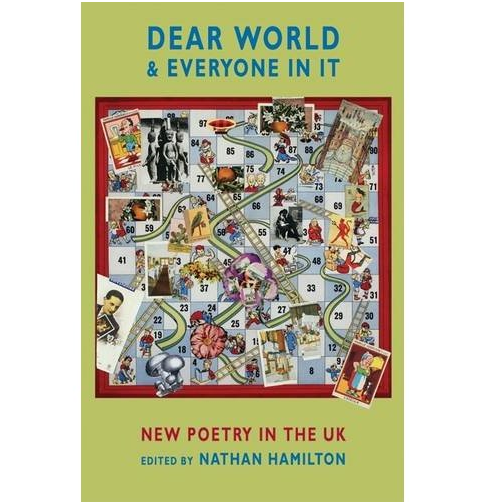Perhaps
because this was the first time I’d performed since South Africa (there’s a whole
other blog post still needing to be written about that), or perhaps because it
was the first time I’d had to recite a whole poem from memory (it’s not a short
one, either), I was terrified. For a start, this was the first scratch event I’d
ever done, and I chose to do it at a dance event, at that. Brave? Stupid?
Maverick? All three?
Luckily,
feedback on our performance was largely positive, and discussions between the
facilitators and other artists at the end of the performances was rich, detailed
and positive. A common criticism, at least of my part of the performance, was
whether or not I should have been ‘reading’ or ‘performing’ the poem. It’s a
debate I find myself coming back to time and time again, even though, as Saul
Williams reminds us in We Are Poets
(very highly recommended, by the way) there is neither ‘performance’ nor ‘page’
poetry: there is just poetry, this ancient art form, stretching back as far as
Homer, which, time and again, has been used to illuminate the world.
Shelving
the academic and theoretical arguments here, a healthy debate was opened: can
hearing a poem – irrespective of whether it is over the top of
visuals/dance/etc. or not – without having read it, be ‘enough’?
As I have
found myself still mired in a state of not feeling particularly energised by
poetry and literature, it is one of many questions I have been asking myself.
Recently, more experimental work has been the only type of literature to light
my candle, if you will. I’ve flirted with, and had some success, publishing
visual or macro poetry on a number of internet poetry blogs, including Bad Robot Poetry and my own, CAPTCHA. I’ve also cracked the tough
outer shell of Bloodaxe’s new anthology, DearWorld and Everyone In It, finding some absolutely astonishing ‘experimental’,
contemporary, ‘austere’ poetry.
But, it
somehow doesn’t seem enough to sate. Having swung chaotically between various
states of calm, frustration and incredulity at my own, as well as the wider
socio/political and economic, situation(s) during these past two years or so,
poetry and literature has — well — it’s figured less and less. At precisely the
time when I should be writing to speak out against this government, this... fucked
up-ness of trying to sustain more and more stuff on a finite planet, I’ve done
the complete opposite, largely. Perhaps this is symptomatic of some of the more
subconscious effects of austerity – an eventual subservient acceptance of
bleakness? – I’m not sure, but I know that the spark has gone, and at the
minute, I’m not even sure I want to look for it.
I met
with a writer friend last week (I’m keeping her name anonymous in case she
doesn’t want to be associated with this level of negativity) and we both agreed
that things, already, had gotten harder in the Arts world here in the North
East. While funding cuts weren’t as severe as we originally feared (50% in the
end, so that’s alright then! Not), it is without a doubt a difficult time to do
this for a living. That last statement is, of course, very highly loaded, and
taps into what culture secretary Maria Miller said today in regards to whether
government should subsidise the arts: “When times are tough and money is tight,
our focus must be on culture’s economic impact.” Doubtless, this will require
another separate blog post, but I know – and I’m sure many of my artist friends
will agree – that I will sleep less easily tonight knowing that if the
government don’t think my words would translate into cash, they will effectively just turn
the other cheek and find someone whose words do. Just consider that for a
second: just consider what tripe might end up being written to chase the
carrot-on-the-stick of government-backed Arts funding. This definitely needs
another blog post.

